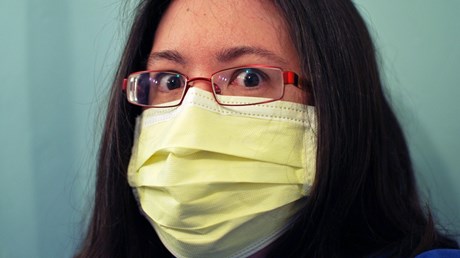This ad will not display on your printed page.
Long before high fructose corn syrup, phthalates in shampoos, or chemical toxins in vaccines, we were already preoccupied with keeping our bodies pure and uncontaminated. Though technologies and forms have changed, the root motivation has always been the same: an individualism that presumes personal effort can ensure our good health.
Eula Biss describes that in the 19th century, the upper and middle classes thought of smallpox and many other diseases as a result of filth, a condition of the poor. They shuttered their windows against the air blowing in from the slums and avoided any bit of contact with those who were thought unclean. Today, we tend to think of many diseases, from cancer to autoimmune disorders, as the result of toxic buildup and strive to avoid the chemicals we deem unhealthy.
Both ideas, filth theory and toxic theory, “allow subscribers to maintain a sense of control over their own health by pursuing personal purity…Our version of [window] shuttering is now achieved through the purchase of purified water, air purifiers, and food produced with the promise of purity,” Biss writes in her fascinating book On Immunity: An Inoculation, which released this fall, just months before the latest measles outbreak and subsequent debate over vaccination.
As a result of our focus on personal purity, we begin to think of individual health as separate from public health: “Public health, we assume, is for people with less – less education, less healthy habits, less access to quality health care, less time and money.”
People with more tend to see themselves as exempt from rules that govern those with less. (This could be said for any number of groups. Bankers on Wall Street, for instance.) In the case of vaccination, it means that people from wealthier, more educated backgrounds often exempt children from the vaccination schedule that other families follow, or refuse vaccines completely.
I did this. While pregnant, I weighed ...


